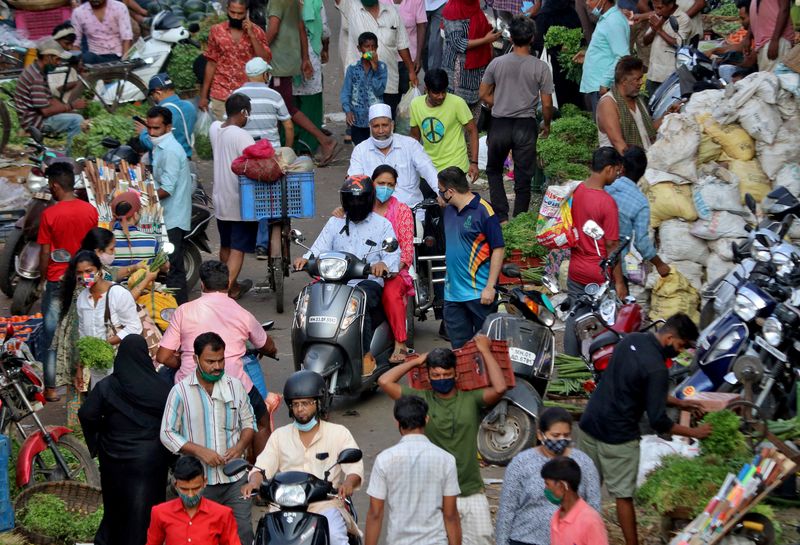India’s Economy Faces Global Risks
2023.05.25 22:30

India’s Economy Faces Global Risks
By Kristina Sobol
Budrigannews.com – India’s economy will develop around 6% this financial year with a little expansion in confidential speculation, as per a Reuters survey of financial experts who said lower development and high expansion were the greatest dangers to the viewpoint.
Even though that was anticipated to happen more quickly than in other major economies, India needs to grow faster and invest more money in order to create enough jobs for the millions of people who start working every year.
According to a May 16-25 survey of 56 economists, GDP was expected to rise by 5.0% annually in January-March, up from 4.4% in the previous quarter. Estimates ran broadly, from 3.4% to 6.0%.
According to survey medians, growth was anticipated to average 6.0% for the current fiscal year before rising to 6.4% in 2024–25. From an April poll, those estimates were largely unchanged.
However, according to many economists, this is still below potential.
“The issue currently is (to) move back to more than 7% we saw during high-development years…we need to get significantly more changes,” said Sakshi Gupta, head financial expert at HDFC Bank.
“If we continue on this path, the current growth momentum does not appear to suggest we will be able to reach it,”
Asia’s third-largest economy may grow less than anticipated but still generate high inflation, given the moderate outlook for the global economy and the high likelihood of below-average rainfall in India this year, which could threaten food supplies and agricultural production.
22 out of 38 respondents, or nearly 60%, stated that this was the greatest economic risk this year. Twelve more people selected low growth and low inflation, while four more people selected high growth and high inflation.
Expansion was anticipated to average 5.1% and 4.8% this monetary year and next, separately, over the Hold Bank of India’s medium-term focus of 4%, proposing loan cost cuts are far-fetched in the momentary following an extended period of rate increases.
As it prepares for national elections in the coming year, the government of Prime Minister Narendra Modi faces challenges from persistent price pressures and declining private investment.
Since 2011, private investment as a percentage of the economy has consistently decreased. More than 55% of financial experts, 21 of 38, foresee a humble increment this monetary year. Another 13 anticipate that it should remain something similar and four said it would fall.
According to Oxford Economics’ Alexandra Hermann, “We anticipate private investment to grow, but growth will remain lackluster against a backdrop of slowing private and external consumption demand, global uncertainties, and higher interest rates.”
However, according to analysts, this is unlikely to significantly boost employment.
The jobless rate increased to 8.11% in April, on a consistent ascent starting from the beginning of the year, as per generally watched information from the Middle for Observing Indian Economy (CMIE), a free examination bunch.
A greater part of financial specialists surveyed, 20 of 36, said joblessness will increment over the approaching monetary year. Twelve said it will remain around something similar while four said it will diminish.
“While corporate development is occurring and India has numerous development areas … they don’t make such a large number of occupations. According to Sher Mehta, vice president of research at Virtuoso Economics, “We don’t think that the situation with unemployment will improve tangibly.”








